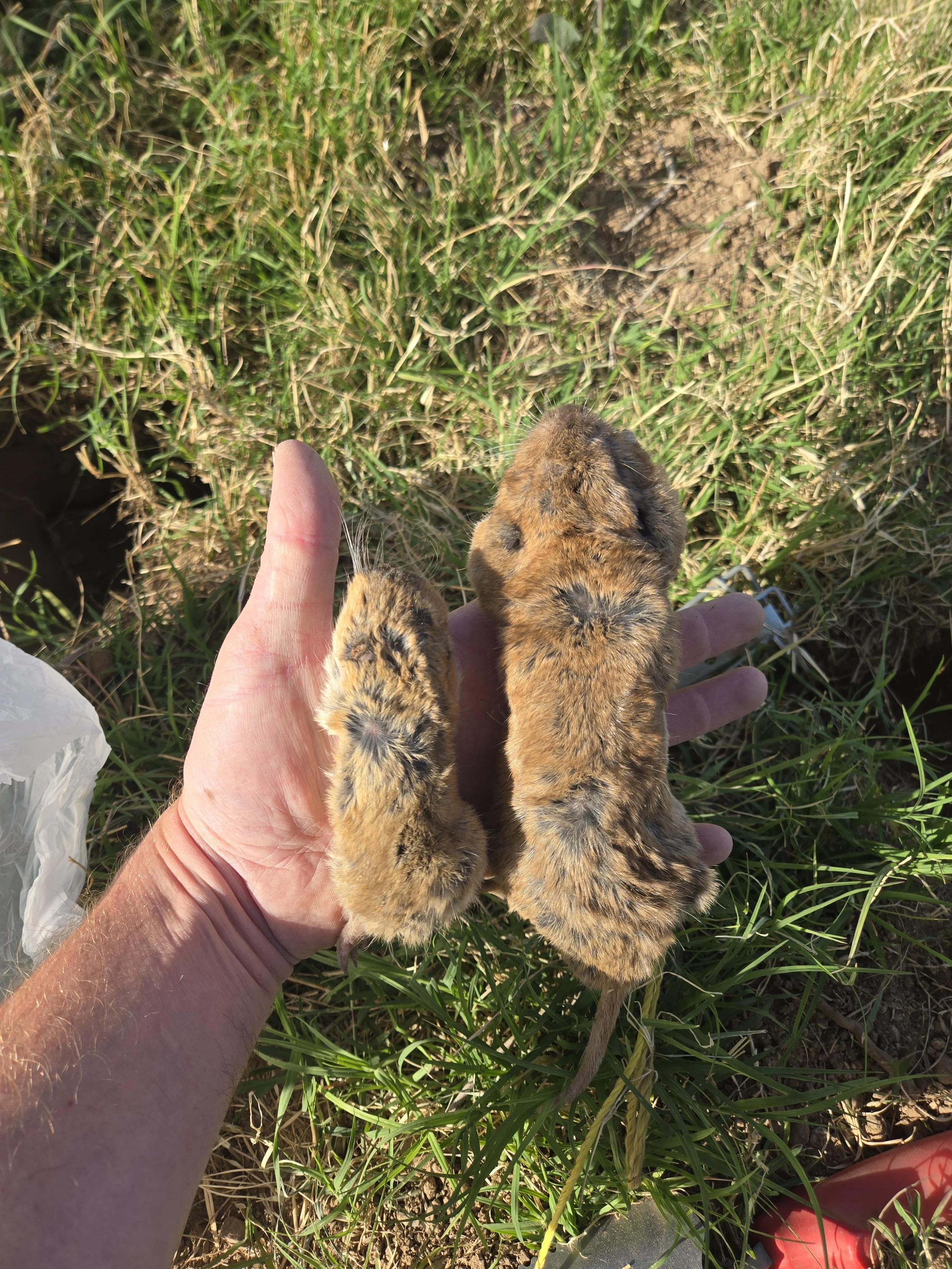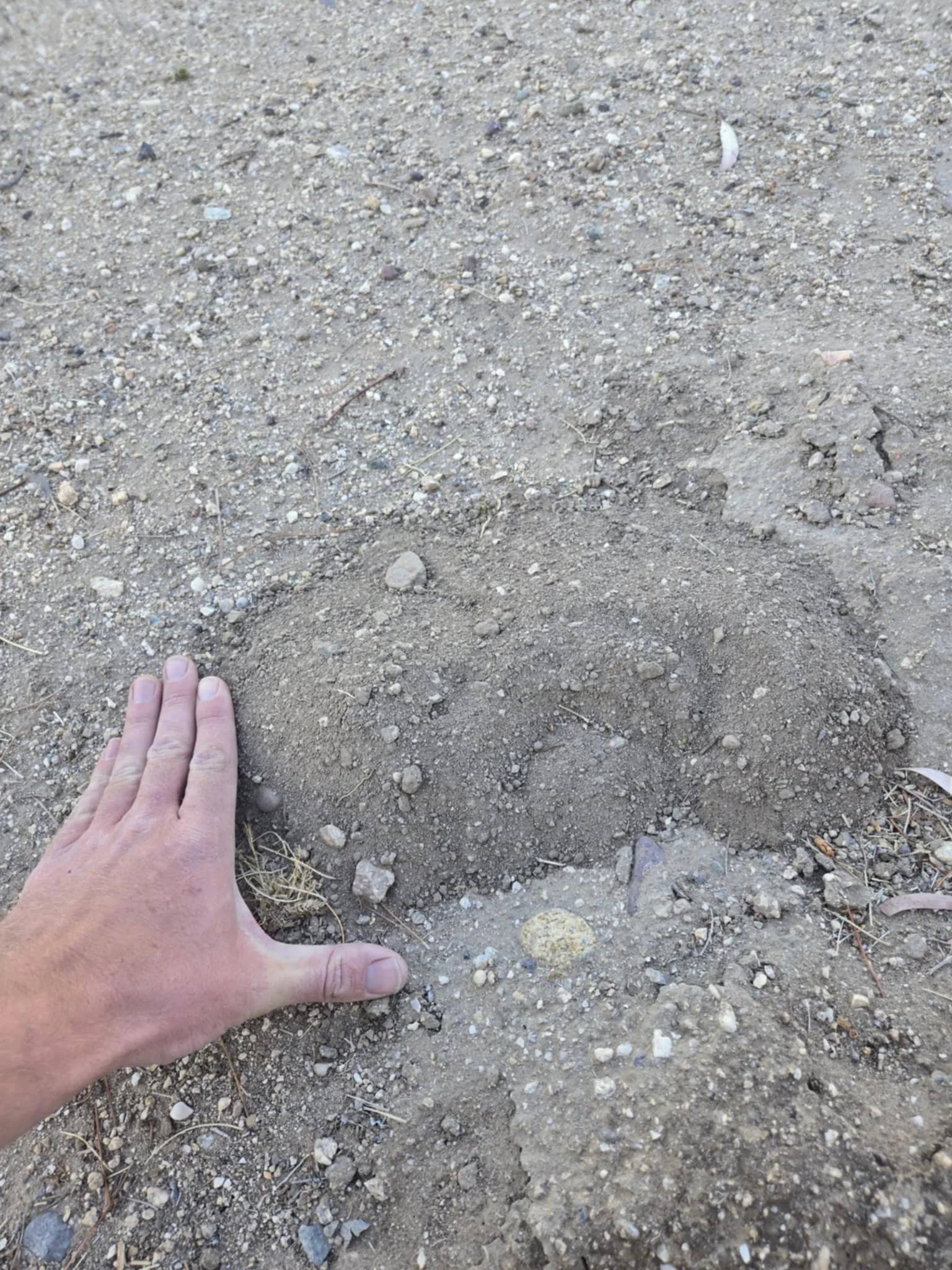Rodent Pictures and Videos
Two Botta’s pocket gophers side by side. Showing the differences in size.
Gophers
A face shot of a Botta’s pocket gopher. Adapted for a life digging underground and eating plant roots, their front armaments are impressive.
A young gopher. These young ones can be tricky to trap. They’re small enough that they can “go around” the traps in their tunnels.
The mound of dirt formed by a gopher digging underground. As they dig tunnels they have to do something with the displaced dirt. The mounds are often vaguely horseshoe shaped and often do not have an open hole.
Gopher damage in a grass lawn. They dig tunnels underneath eating the grass roots, but they also mound the dirt up ontop of the grass. You can often feel the ground give way as you’re walking along collapsing the tunnels.
Packrats have been a desert resident for thousands of years. Nowadays they’re the most notorious rodent in the Sonoran Desert. Blunter face, softer features, bicolored furred tail, and a tail thats shorter than the length of the body help distinguish packrats from roof rats.
The actual nest cup deep within the debris that makes up the majority of a packrat nest
A packrat nest under an AC unit slab.
Packrats
A large packrat nest. This one was built around a fallen mesquite trunk. Large nests like this spawn off satellite nests as the rats in the large nest reproduce. Sort of like the mothership sending out rat colonizers into your yard.
Roof Rats
Roof rats are an invasive species that only recently made its appearance in Tucson. Quinn of SWS originally was interviewed in an Arizona Daily Star article in 2023 when they showed up in Sam Hughes neighborhood. Since then they’ve taken over the Tucson valley. Angular head, prominent yellow teeth, naked scaley stereotypical “rat tail”, large size, and a tail that is longer than the body help distinguish the roof rat from the packrat.
A roof rat compared to a hand. Note the tail being longer than the body. Less obvious in this picture is that the tail is naked and scaley.
A collection of roof rats from an attic. Roof rats cannot be released alive.
Roof rat in Sam Hughes attic in Tucson. Roof rats have different diets than our native packrats which makes trapping them a little more difficult.
We have 5 species of mouse in the Tucson area, but deermice are generally the most common one found in attics here.
Mice
Pied mouse found during mouse trapping service at a Tucon home. The only pied mouse Quinn has found in the wild.
Failing flashing at the top of a parapet wall allowed mice and roof rats into the roof of this building.
Mouse entrance found behind viga during a Tucson home rodent inspection. Viga’s are the source of a lot of wildlife grief. From bats to rodents, everything wants to get in behind them.
Rodent Sign/Evidence and Inspection
Rodent damage on a wooden roof frame. Close inspection shows the little teeth marks in the wood, rather than the “peck” mark of a woodpecker for instance.
Rodent grease in the back of a soffit. There is often a gap at the end of the stucco in the soffits making them a go to spot during rodent inspections.
Packrat nest debris above bathroom in Tucson attic. The complaint was for a stink, and keen eye observers can actually spot the dead issue in this photo.
Packrat nest removal Tucson. Keeping nests away from homes/structures/things you care about limits how many packrats are nearby to cause issues.
Rodent “grease” on a brick home. Rodents make trails with their body oils over time making some rodent inspections easier.
A gap under the rain valley of a spanish tile roof. Rodent feces and sign suggested there was a hole into the attic up underneath.
Assortment of packrat nests and packrat damage found during rodent inspections in Tucson.
Wires in a Tucson attic chewed by rodents. And electrical wires entering a bird board vent exposing hot wires.




































